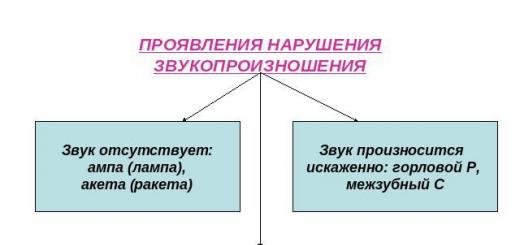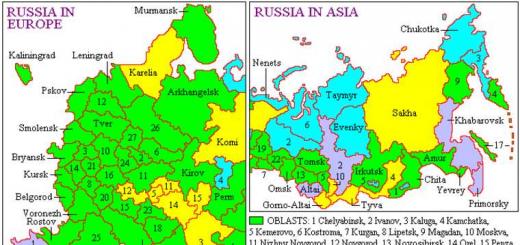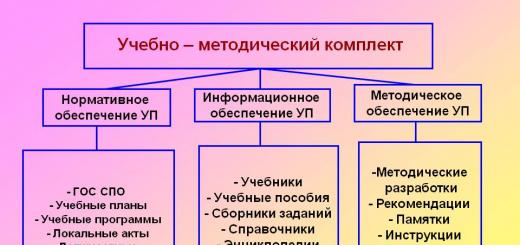You need to learn a poem, but there is no opportunity or desire to spend a huge amount of time repeating a poetic work many times, then an interactive online service will help you with this.
It is noteworthy that memorizing poetry with will be interesting for both adults and children. And most importantly, this online service is completely free and allows you to quickly and easily learn any poem in a playful way, regardless of its size and degree of complexity.
How it works?
All experts are unanimous in their opinion - the human brain is able to remember this or that information for a long time only as a result of long-term repetition. The creators of the online service did not “reinvent the wheel” and took the same repetition as the basis for the operation of the resource, but only changed its form.
You won't need to repeat the same lines over and over again until you remember them. Repeating the poem will resemble an exciting game. The lines of the verse will turn into verbal puzzles, from which you will need to put together a whole picture - a poetic work.
There are six levels for studying the poem. The level is considered passed if you are able to “assemble” the proposed fragment of a poem from scattered and jumbled lines without errors. Of course, before this you will need to read this fragment at least once (where would we be without it!). But it’s much easier to read it once or twice than to repeat it a hundred times.
If you make at least one mistake, you will have to go through the level again. Each level is more difficult than the previous one, which adds a touch of passion and excitement to the whole process of studying the poem.
Why is it worth learning poetry with?
The realities of our lives are such that most schoolchildren (and adults too) spend almost all their free time at the computer. So why not combine a pleasant activity with a useful one - sit at the computer, chat with friends, and learn a poem. Moreover, the game form of memorizing poetry, presented by the online service, allows you to learn a verse much faster than by repeating it many times.
An additional advantage of the online service
Instructions
To begin, read the entire poem, preferably out loud. After a short pause, read it again, but more slowly, trying to grasp the meaning of each stanza. Then put the book down and try in your own words what you just read. Find out the meaning of words you don't know. It’s good if at this stage you can reproduce several rhymes.
Read the poem again, mentally dividing it not into quatrains, but into stanzas. Start learning them one by one. Don't learn a poem line by line - if you can't unify the idea into one whole, there's a good chance you'll miss every other line. During repetitions, feel free to peek at the text so as not to create long pauses between forgotten lines and unnecessary excitement.
Already at the memorization stage, pronounce the poem with expression, noting pauses, rises and questions with intonation where necessary. As you repeat verse after verse, imagine everything you are talking about. You should feel the poem as if you yourself were a witness to the events described in it.
If you have difficulty memorizing, rewrite the poem by hand several times. Write slowly, line by line, do not shorten the words. This will help reinforce the memorization process. Take short breaks. If you need to learn a poem by tomorrow, repeat it at night, as in. And in the morning, read it by heart again. If you need to learn a poem in 30-40 minutes, divide this time into 2 parts, between which take a five-minute break.
With feeling, with sense, with arrangement. It's even better to do this in front of a mirror. Read slowly, loudly, place semantic accents expressively: lower your voice in quiet moments, highlight emotional ones with intonation.
Rhyme itself promotes memorization, but reading aloud helps you catch the rhythm. This method especially helps auditory learners - those who better perceive and remember information by ear.
Write on paper
Read the poem several times and try to write down what you remember. This way you will immediately understand where you have difficulties and what you need to re-read again. In addition, working with your hands connects motor memory.
If at this time you speak the text out loud, then three types of memory will work simultaneously for you: visual, motor and auditory, which means it will be much easier to remember.
Hum
Singing helps memorize large poems. Try setting the poem to a melody that you like. Or check if someone has already done this before you. You can probably easily reproduce Marina Tsvetaeva’s poem “I like that it’s not me that makes you sick...”, remembering the song from the film “The Irony of Fate, or Enjoy Your Bath!”
Deal with unclear points
It is very difficult for us to remember what we do not understand. And poetic language, as a rule, is very different from colloquial speech: you will probably come across unfamiliar or outdated words, unusual grammatical phrases and constructions, unknown names and titles.
Understand all unclear words. Look up their meanings in the dictionary.
For example, let’s take Pushkin’s poem “I erected a monument to myself not made by hands...” and write out from it all the words with which difficulties may arise: Pillar of Alexandria, piit, tungus. We learn that the Alexandria Pillar is a monument to Alexander I in St. Petersburg on Palace Square, piit is an outdated designation for the poet, and Tungus is the name of the Evenki. Now you can imagine what we are talking about.
But keep in mind that in some cases it is important to understand not just individual words, but the context: allusions, allegories. Therefore, it is useful to read an analysis of the poem or look up the creation story.
Memorized information quickly flies out of your head. The association method helps her almost forever.
The essence of the method is that we need to create a combination of new information and what is already familiar to us. Our brain remembers images better, what we can see and touch, and then imagine. It is for this reason that we remember people's faces better than their names.
First, come up with strong visual images for each line. At the same time, the association should be individual and arise in your head without effort.
For example, let's take an excerpt from Pasternak's poem:
February. Get some ink and cry!
Write about February sobbingly,
While the rumbling slush
In spring it burns black.
So, here are the associations for the first line: a man in a coat walks through dirty but deep snow.

He has spilled ink in his pocket, which he scoops up and holds in his palm. Ink simply poured into a pocket is quite a memorable image. The brighter, more unusual, and more interesting the association, the better.
In the same way, come up with associations for all subsequent lines. And then memorize and repeat. Any technique will be absolutely useless if you do not make an effort to remember.
Use the snowball method
If associations don't help, try memorizing them. To do this, read the first line and repeat it out loud several times. When you remember it well, move on to the second: read it several times and connect it with the first. Repeat several times: first line, second. Then move on to the third. And so on until the end.
Memorizing a poem takes a long time, especially if you need a large amount of text. But before the speech, you will only need to read the first line: the rest will appear in your memory on their own.
To make memorization faster and easier, use these tips.
- Create a positive environment. If you find it easier to concentrate in silence, study when no one is home. If you are used to background noise, turn on soft music. Exercise where you feel comfortable and where there are no distractions.
- Ask someone else to help. Read him the poem you learned. You can use the echo method: a person tells you a line, you repeat it, and then try to reproduce the entire passage. Or he says the first line - you say the second, he says the third - you say the fourth. And then vice versa.
- Make a cheat sheet. Write down key words from the poem that will help you quickly remember the content. If you teach using the association method, you can draw a schematic comic: associations for places that cannot always be reproduced correctly.
- Take breaks and repeat the poem before bed. This will help you relax and sort out new information.
Many schoolchildren are faced with a situation where they simply need to quickly learn a poem, but there is practically no time left for this. There is an effective technique that answers the question: how to quickly learn a poem at recess, even before the lesson, ensuring accelerated memorization. Let's be honest: the technique is not very simple, but if you wish, you can master it.
Instructions for learning
- In order to quickly learn a verse, you should read it out loud 2-3 times.
- During the reading process, it is better to use the method of associations, mentally imagining the picture referred to in the poem. Something must remain in your head after this.
- The poem needs to be read one more time, but at a slower pace, trying to remember the form and tenses of the words.
- In order to connect another type of memory, you need to rewrite the poem on paper. In this case, it is worth saying the poem out loud. You should not skip this moment, as it will allow you to learn the verse even faster.
- In order to simplify the memorization process, you can break each stanza of the poem into several even smaller parts.
- You need to directly memorize a verse only from the sheet of paper on which it was copied. Read the first line several times, and then repeat it out loud, without looking at the sheet. Then you should read the first and second lines together, and then repeat them out loud all together. Next, you should do the same with the first, second and third lines, adding one more each time. However, it is not at all necessary to learn an entire poem in this way. A new cycle can be started with 4–8 lines.
- Sometimes it happens that some places in a poem cannot be memorized. Basically, this happens at the junction of so-called cycles. Therefore, you can write a cheat sheet on your hand with the word with which a cycle that is difficult to remember begins.
- This method of memorizing poetry is very effective and allows anyone, even without any training, to learn several pages of text in 1 hour. However, if you have a little more time left, then start memorizing the verse 2 days before it is due. On the first day, you need to devote 20 minutes to this process before going to bed, and on the second day, increase this time to 1 hour. After all, it’s no secret that at night a person comprehends what he has learned. As a result, a poem memorized in this way will bounce off like teeth.
We recommend bookmarking this page ( press Ctrl+D). Problems with memorization may occur if you do not get enough sleep. To improve your memory, try to sleep at least 7 hours a day, breathe fresh air, spend more time in nature, and play sports.
Children go to first grade and during reading lessons are assigned to learn a poem. This is where the problems of many children and parents begin. However, children learn poems easier than adults. Is it possible to learn a poem well and quickly? Well, of course, yes! This article will tell you how to easily learn the verse.
Why is it so necessary to learn poetry from time to time?
The problem when studying poetic works appears if the child does not like and does not understand why they need to be taught. In fact, learning poems is very useful and even necessary.
Firstly, reading such works develops memory. There are several ways to improve memory, but the most effective is working with poems. Secondly, such rhyming texts develop diction and speech.
How can you easily learn a verse? In order to memorize the text as quickly as possible, you must follow the following rules:
- Be alone with yourself, turn off the music, remove all annoying things, exclude the TV, radio, telephone and other equipment from being on. We need complete silence and calm.
- Have a positive attitude towards work and don’t get annoyed if something doesn’t work out. The right attitude is very important when studying poems.
- It’s great if you already know what kind of memory works for you: visual, auditory or figurative memory. If you still haven't noticed which type of memory is a priority, try to find out. Book lovers most often have a visual sense, music lovers have an auditory sense, and designers, artists and film buffs have a visual sense. Use these memorization methods.
- How easy is it to learn a verse when there is very little time left? It is necessary to avoid psychological pressure; do not think that you will not have time to do anything. This is distracting and greatly interferes with your studies.

instructions for quickly learning text
How to easily learn a big verse? There is a special algorithm for memorizing difficult texts:
- Read the poem very carefully. Try to understand its meaning. You need to read it not only out loud, but also several times to yourself. When reading aloud, try to gesture, highlight commas, exclamation and question marks with intonation. Think about the essence of the text.
- Follow the sequence of events described by the poet, or the sequence of thoughts.
- If you have a figurative or visual memory, write down the verse on a piece of paper. How easy is it to learn a verse if your memory is more developed by ear? Find the recording or read the text on the recorder. Listen and repeat.
- Learn poems stanza by stanza; after memorizing a stanza, close the textbook and write it down on paper from memory. Do this with each subsequent one.
Other learning methods
How can you easily learn a verse in other ways?
- Write on a piece of paper or retype a stanza of the poem several times and repeat it out loud.
- Find and determine the connection between stanzas, remember the sequence. You can draw up an outline of the poem according to the type of content on a piece of paper.
- Determine what meter the work is written in, remember the placement of accents.
- Underline the key phrases in the poem that reveal the full meaning of the stanza. The main thing is to rely on them when memorizing.
- After you have learned the poem, you need to consolidate it by reading it out loud several times.
- Know that memory works better when you have a fresh mind, that is, during the day, contrary to popular belief to the contrary.

Many teenagers think about how easy it is to learn poetry. In fact, if you follow these rules and recommendations, any text, even the most complex, can be easily remembered.










